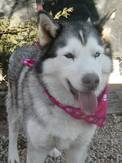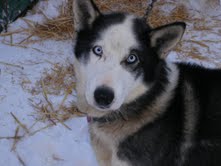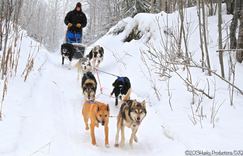Unusual Pet Behavior
Bonnie Taplin, M.A.
Animal Communicator
(949) 636-5500
Throughout the years I have
been working intuitively with animals, the typical requests for help I receive deal with
issues such as aggressiveness, inappropriate toileting, unresolved health-related
issues, and facing the grief and mourning connected with the loss of a
pet. Every now and then, a client calls
on me to help figure out why their pet is behaving in what would be called
“unusual.” In most cases, these
behaviors appear as a result of a pet’s effort to get a message across and be acknowledged
for something important.
Simply put, behavior is a
reaction to stimuli. But sometimes,
there appears to be none. What we must
look for then, is some kind of stimuli we would consider passive – or more likely
– unintentional. One case in particular
stands out: a husband and wife came to
me to hear what their cats had to say; they told me they each had one cat of
their own, and the husband was baffled, and almost annoyed by, his female cat’s
continuous staring at him. When I asked
the cat about this, she told me, “I adore him so much!” And, because of
the intensity of her love, I was brought to tears. The husband reacted with surprise, because he
was expecting an answer, he said, that had nothing to do with his cat’s love
for him!
Another interesting case I
was called in for involved a cat who was pulling his fur out. My client was a middle-aged single woman with
three cats; they had recently moved to Southern California from New York. Two of the cats seemed to have made the transition
smoothly; but the other one began biting himself and literally pulling his hair
out. During our conversation, this
unhappy kitty eagerly shared with me that he was “offended” that he had not
been asked about the upcoming move.
He stated that he was so angry, that he didn’t know how else to get the
message to her; so he began pulling his fur out—and THAT certainly got her
attention! Ultimately, I asked the mom
if she would apologize and explain the moving issue so her cat would
understand. Later, on follow-up, I
learned that this cat’s hair was growing back…and he apparently forgave his
mom.
Having met a wide variety of
cats, I have learned exactly how intensely emotional these beautiful animals
can be. You may wonder, what about
dogs? Interestingly, canines also have
very intense feelings; but they generally have a more diplomatic approach to
explaining their feelings and thoughts.
One memorable dog stands out for me:
a beautiful black lab, who lived with her single mom and her male
roommate, willingly shared lots of information during our session. I was contacted by the young lady to find
out, among other things, why her dog was showing clingy behavior, displaying
separation-anxiety type behavior. At
the very end of our talk, when I always give the animals one last opportunity
to say what’s on their mind, this lovely dog said: “I know my mom loves me, but could you please
ask her to stop calling me fat?” When I
presented the woman with this request, her response—as she gasped—was “Oh! I do call her ‘fatty’ sometimes!”
In conclusion, I’ve
discovered that animals really are much more “conversational” than we might
think. My advice to all who have special
animals in their lives: please tell them
what is happening in their lives—keep them “in the loop” so to speak; they do
pick up some info, but really could benefit by some details; also—before it
gets too complicated, please look for those subtle signs that they are trying
to “tell” you something important. Animals
do have lots to share with us, they want to be heard, and they always welcome
the chance to say how grateful they are to be a part of our homes and hearts.
Bonnie Taplin, M.A.
Animal Communicator
(949) 636-5500















.jpg)








